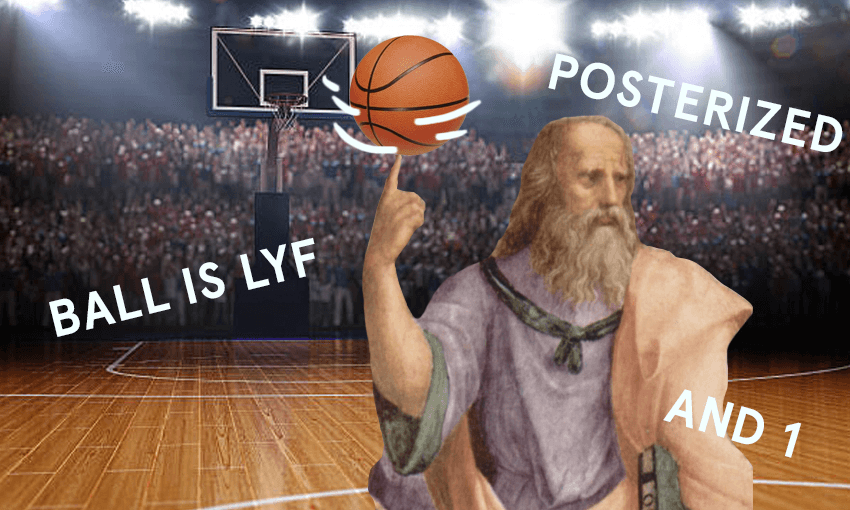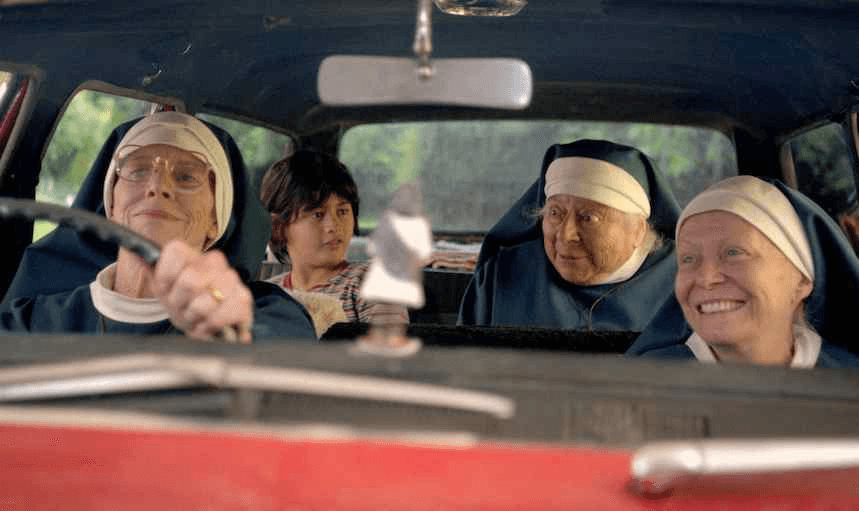The Allegory of the Cave, and Madden: Haimona Gray muses on how the two are actually pretty similar, using his own (limited) experience with sport and his (not-so-limited) experience with sports video games.
I have never dunked in real life. Plato probably didn’t either.
What makes Plato and I different – besides location, era, and cleanliness – is that I can clearly conceive of dunking a hoop. In my mind’s eye I have not only seen it happen, but I have done it many times – not to mention a couple of bicycle-kicked goals, and Samoa winning a Rugby World Cup too.
To put it humbly, I have achieved far more than Plato across a nearly endless list of sporting endeavours which didn’t and couldn’t have existed in Classical Greece. While Plato never conceived of video games in his lifetime, he did conceive of simulated existence and representations which, to the participants, were ‘real’.
In the Allegory of the Cave, Plato posed a situation in which people living in a cave who have never left the cave perceive the shadows projected on the walls, created by objects passing in front of a fire behind them, as actual reality.
Plato argues that, once freed and shown the reality of the world outside the cave, their old lives inside the cave would essentially be proven to be a false simulation of the real world. Just a bunch of light and dark, signifying something but not anything real.
However, according to modern anthropological thought and behaviorism, the knowledge of the cave and its shadows are formative events in these people’s lives and wouldn’t be just forgotten overnight.
More plausible to me is that these people, once removed from their cave, would seek to combine their lifetime of experience with the new world in front of them. Like a sports fan seeing their team’s flaws as real – but also only a new coach or young future-star away from being resolved – they would be mixing fact and fiction to create their own world view.
In the deeply subjective world of sports and sports video games, the flickers of the cave can become just as real as the game on the field.
Anyone who has played any Madden will be immediately familiar with the floating camera which shows the whole field and its many many players from a top-down view. This camera, named Skycam, was created as an elegant solution for gaming and is now used for the real-life broadcasting of multiple sports. As such, it is one of many examples of the simulation informing the simulated.
Beyond the purely visual, video games have also deeply influenced sports fandom, otherwise known as the buying of things.
When I played my first Madden I had only ever seen one game of American football. It was confusing. Seventeen years later the world of the NFL is much more accessible to people in New Zealand thanks to streaming services. In spite of this, most NFL fans I know spend more time on their Madden teams then watching the sport, and many support their team of choice for deeply gaming-influenced reasons.
At street markets across the less bougie parts of New Zealand you can find people selling, and buying, Rajon Rondo Boston Celtics NBA jerseys and Michael Vick Atlanta Falcons NFL jerseys. Maybe even a rare David Robinson San Antonio Spurs NBA jersey if you are lucky.
Are the sellers or purchasers of these signs of fandom aware that Rondo has made homophobic statements publicly and hasn’t played for the Celtics in four years? That Mike Vick was responsible for a dog fighting ring and hasn’t played in Atlanta since 2013? Or that David Robinson hasn’t played in the NBA for over a decade and is a really really boring guy? None of the three people I surveyed seemed to.
Their fandom wasn’t connected to the game, it was connected to gaming. The Vick fan loved pre-jail Michael Vick’s speed and toughness in Madden. He was their favourite player. They had also never watched the real Vick play – “too many ad breaks”.
While it would be easy to dismiss these people as fake fans, they are assuredly fans of something sporting. To them the simulation is just better. Creating this distinction is easy; less simple is the lingering effects of a simulation highlighting something otherwise unknowable about its source.
Unlike American football, a distant and confusing sport for a kid growing up in 1990’s Wellington, soccer has been a common kids’ sport in this country for decades now.
No one could argue that youth soccer, with its focus on ‘running towards the ball before falling over’ tactics, has much in common with how the sport is played at its highest levels. As a multi-year youth soccer player, I had no idea how teams lined up on the field, or why. It wasn’t until Football Manager taught to me did I ever know where, or why, to stand. That wasn’t all I learned from the game. It also showed me a version of truth which exists beyond the cave or the real world: to hate my idols.
I am, regretfully, an Arsenal FC fan, and it’s an undeniable fact that the fictional Arsenal of Football Manager has been more appealing than the real thing in recent years. Being beholden to the whims of an egomaniac ageing Frenchman who refuses to just retire is much less fun than being beholden to the whims of me.
This freedom – mixed with an unnecessary amount of in-depth data once solely available to real football managers – can create a delusion that there are options and players one’s team is simply ignoring.
A little knowledge can be dangerous, but what about a massive amount of little knowledge?
I – an indoor soccer player living on the other side of the world from the team – would do a much better job than someone with real world credentials. Why? Because I would do things so differently that my movements and decisions couldn’t be proven or disproven. My choices exist as neither a cave shadow nor a permanent literal world, but as an alternate world discrete from both.
We live in a world that would be unfathomable to the great Greek philosophers, but one deeply influenced by their thought. While Plato lacks my handles and ability to create fast break alley-oop opportunities, he would probably be fascinated by a world where idols are made and destroyed overnight. A world where you can sometimes learn more from simulated experiences than real ones.
We’ll never know whether I could really dunk on Plato, but I choose to believe in my fictional handles.
This post, like all our gaming content, comes to your peepers only with the support of Bigpipe Broadband.



